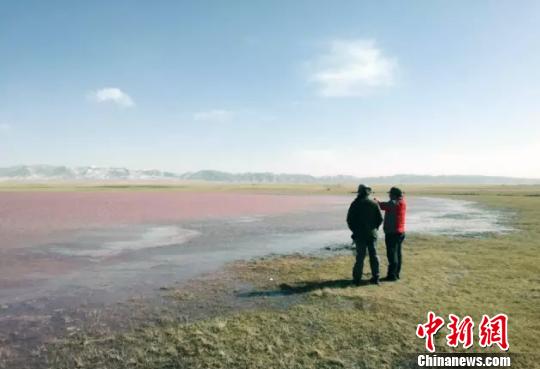China probes pink plateau lake in Qinghai
Xinhua, April 17, 2017 Adjust font size:
|
|
|
Qinghai Lake |
Chinese officials and environmental experts are investigating a plateau lake that has turned pink.
The one-square-kilometer lake is part of Qinghai Lake complex in Qinghai Province. It is separated from the main lake by a sand strip.
Xinhua reporters confirmed that the surface of the small lake has turned pink, the mud and weeds under the water were also tainted, and there was an unpleasant smell.
Officials with the Qinghai Lake Preservation and Administration Office said a large amount of mud and weeds were tainted by a "pink-colored substance."
Water samples have been sent to a lab in central Hubei Province for analysis, the officials said.
The officials were only alerted after a member of the public uploaded images of the pink lake to the Internet, sparking heated debate.
"The lake is surrounded by pastures and small settlements. There is no industry nearby, so we can rule out the hypothesis that the lake was polluted that way," said a statement posted on the office's website.
The lab tests are still ongoing.
Qinghai Lake, perched on the northeast part of Qinghai-Tibetan Plateau, covers 4,429 square kilometers, and is the country's largest salt lake and an important habitat for plateau birds.
The lake expanded in recent years thanks to the government-led preservation efforts, especially reforestation to keep desert and sands at bay.
